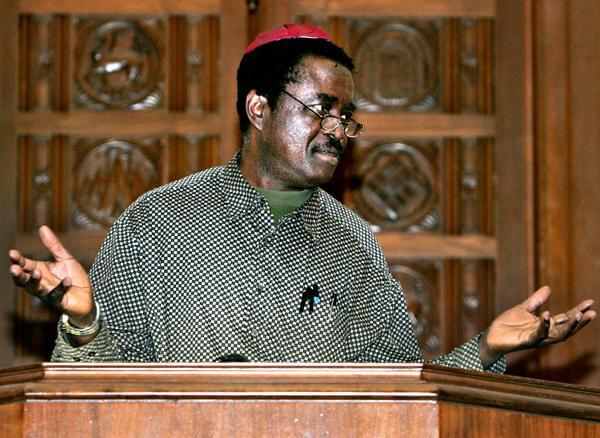By Anna Gustafson
To commemorate the 65th anniversary of the liberation of the Auschwitz-Birkenau death camp, speakers at a Kew Gardens Hills synagogue last week said individuals must fight to stop mass killings that continue today in places like the Congo and Darfur.
“Please, as a human race, we must remember the Holocaust and be aware it’s still happening today,” said Yaa-Lengi Ngemi, a former Congolese citizen and now a professor at the College of New Rochelle. “Millions of people have died in the Democratic Republic of the Congo since 1996.”
Political unrest and civil war in the Congo have killed more than 5 million people — almost half of them under age 5, according to the International Rescue Committee.
Ngemi was joined by a bevy of community activists and residents for International Holocaust Remembrance Day at the Jewish Center of Kew Gardens Hills Jan. 27. The United Nations designated Nov. 1, 2005, in memory of the victims of the Holocaust on the day when the largest Nazi death camp, Auschwitz-Birkenau, was liberated by Soviet troops.
Of the 1.1 million victims at the camp, 90 percent were Jewish.
Queens College junior Jennifer Polish also called on individuals to advocate for aid to Darfur in western Sudan, where more than 300,000 people have been killed and millions have been displaced since a civil war broke out in 2003, according to the United Nations.
“Genocide is a crime against every human being and the best way to commemorate the Holocaust is to look at genocide happening today and say what can we do and how can we stop this,” said Polish, who organized a simulated refugee camp at Queens College last spring to raise awareness about genocide.
Numerous Holocaust survivors attended last week’s ceremony, including Richmond Hill resident Michael Preisler, a Polish Catholic who spent more than three years as a prisoner in Auschwitz after being involved in the resistance in Poland.
Preisler, 90, survived the “death march” out of Auschwitz, which took place in sub-zero temperatures, when Germans began to transferred prisoners a week before the Russians arrived.
The 90-year old remembers the march well and said the snow through which the prisoners marched quickly became red from the blood of those who fell from pain or exhaustion and were shot dead by the Nazis.
“Jews and Christians, we worked together to be alive,” Preisler said.
The ceremony was often emotional, with Cantor Sol Zim performing a number of songs he wrote for Holocaust survivors, and several politicians addressed the crowd, including City Councilman James Sanders (D-St. Albans) and state Assemblyman Rory Lancman (D-Fresh Meadows).
“There is an international language we must understand and that language says we must stand up against injustice,” Sanders said. “There must be no genocide on our watch.”
Rabbi Moses Birnbaum of the Jewish Center of Kew Gardens Hills, the evening’s key speaker, lost a tremendous number of relatives in the Holocaust, including his grandparents.
“Every day can be a day of remembrance, not only for the 11 million who died in the Holocaust, but for those who have been killed in Asia, Darfur and the Congo,” he said.
Reach reporter Anna Gustafson by e-mail at agustafson@cnglocal.com or by phone at 718-260-4574.



































